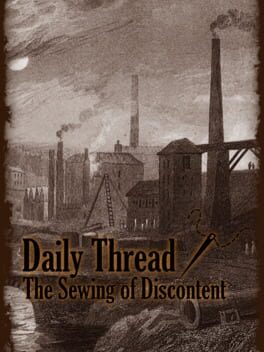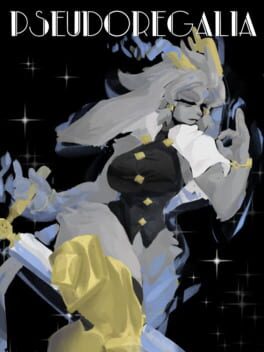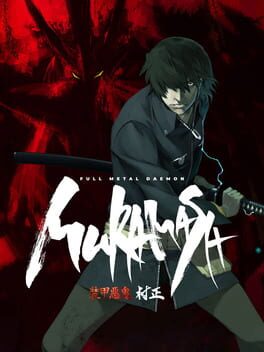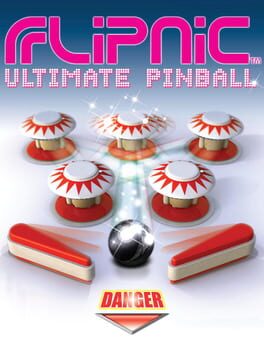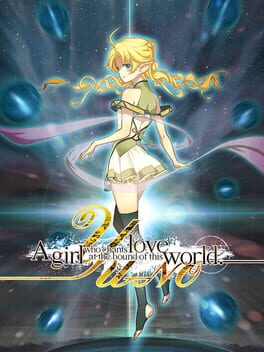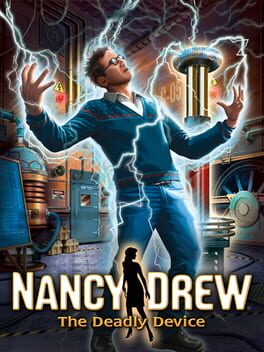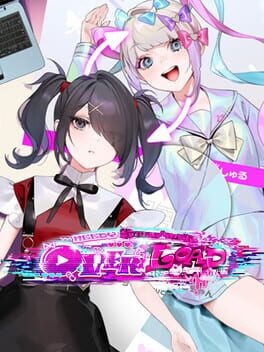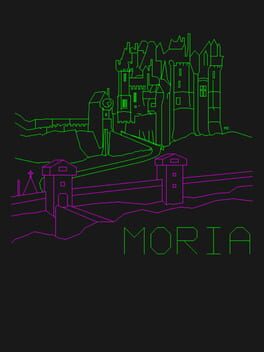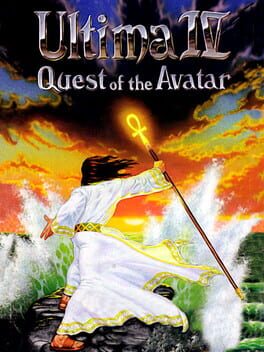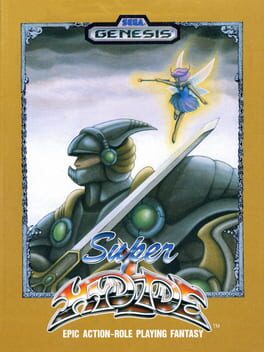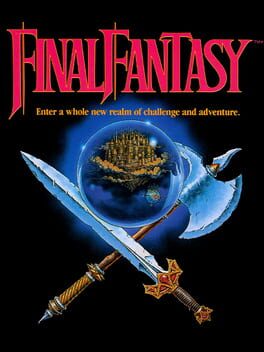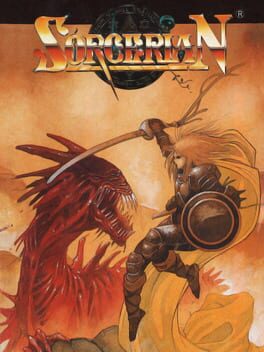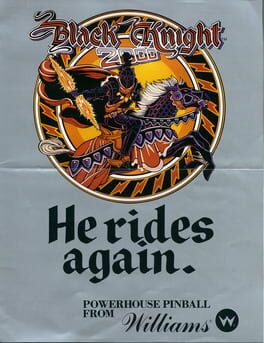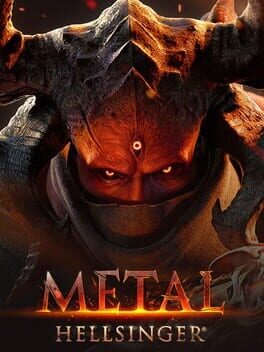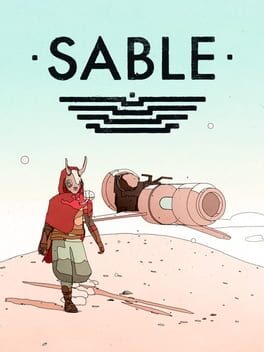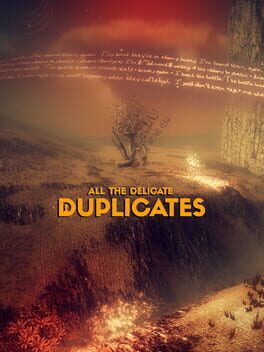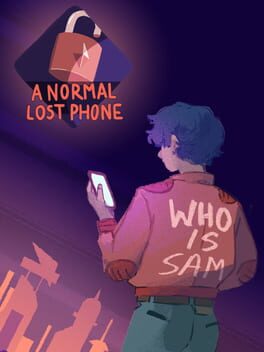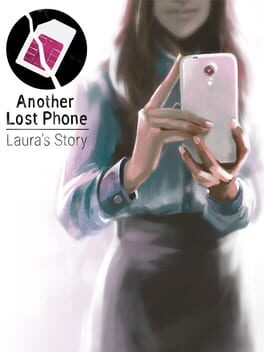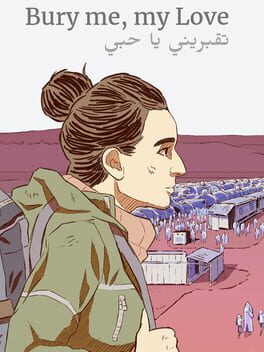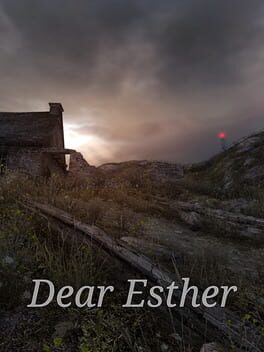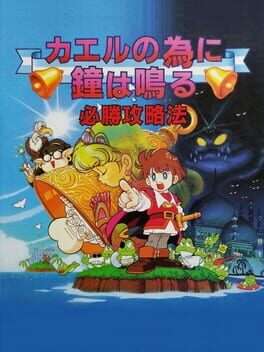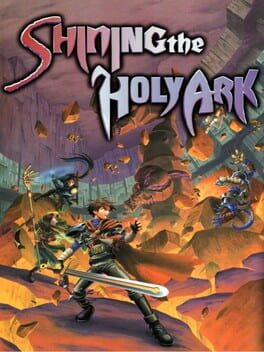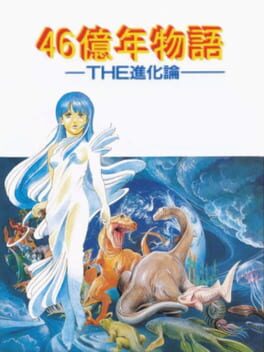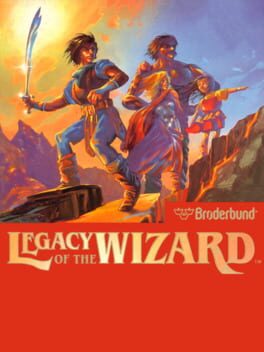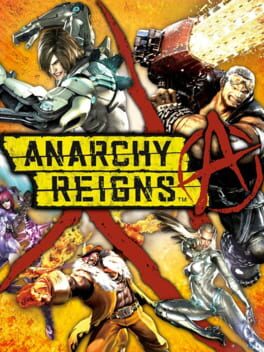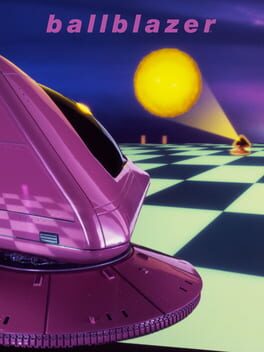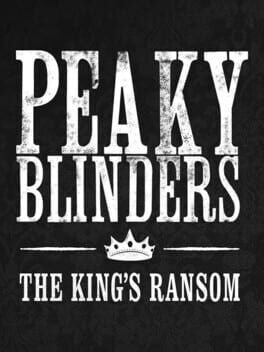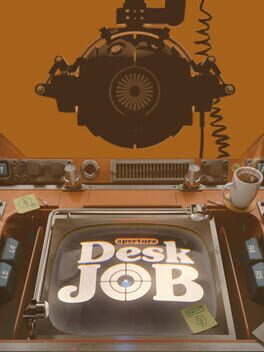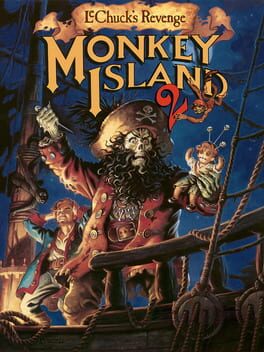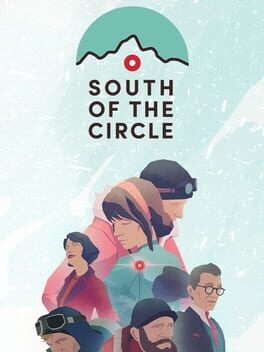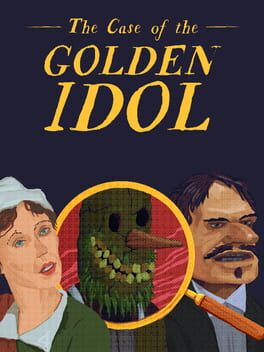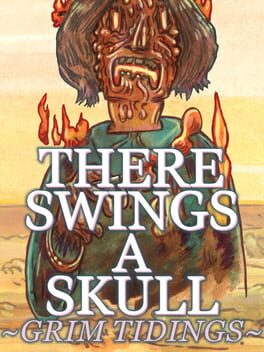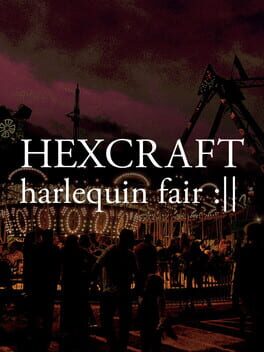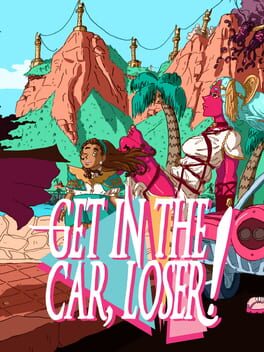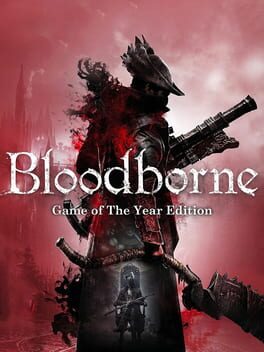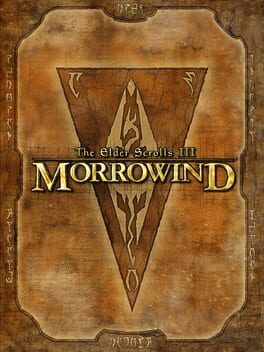jakobvongunten
116 reviews liked by jakobvongunten
Final Fantasy XVI
2023
Final Fantasy XVI is a game I feel like should have been something up my alley, but ended up feeling a bit half baked despite all the clear effort that went into it.
The game of thrones inspired setting and tone doesn't bother me in terms of the story it wants to tell. My issue is rather how small the big world spanning conflict feels when just about every human in the main cast are british white people. Honestly I think Tales of Arise, despite my own issues with its story, was able to handle its global slavery conflict better in terms of making each territory's culture feel distinct.
I was actually curious if the action in this game would appeal to me given someone from the Devil May Cry V team apparently worked on this. Sadly it just felt like a watered down Devil May Cry due to the combat toolset feeling limited in comparison to other beloved character action classics like Bayonetta or The Wonderful 101. Overtime more options are made available, but I don't feel like enemies in the game make you feel the need to try out multiple combat strategies to keep my brain and my fingers at the ready.
As for the cast of the game, I didn't really like any of the characters all that much. It's fitting there's a lady named "Mid" in here, because that's really all I have to say about just about everyone in the game.
I don't believe Final Fantasy needs to be a certain type of game. I want the series to feel free to experiment and try out different storytelling vibes and gameplay genres. For me, this experiment just didn't feel fully cooked.
The game of thrones inspired setting and tone doesn't bother me in terms of the story it wants to tell. My issue is rather how small the big world spanning conflict feels when just about every human in the main cast are british white people. Honestly I think Tales of Arise, despite my own issues with its story, was able to handle its global slavery conflict better in terms of making each territory's culture feel distinct.
I was actually curious if the action in this game would appeal to me given someone from the Devil May Cry V team apparently worked on this. Sadly it just felt like a watered down Devil May Cry due to the combat toolset feeling limited in comparison to other beloved character action classics like Bayonetta or The Wonderful 101. Overtime more options are made available, but I don't feel like enemies in the game make you feel the need to try out multiple combat strategies to keep my brain and my fingers at the ready.
As for the cast of the game, I didn't really like any of the characters all that much. It's fitting there's a lady named "Mid" in here, because that's really all I have to say about just about everyone in the game.
I don't believe Final Fantasy needs to be a certain type of game. I want the series to feel free to experiment and try out different storytelling vibes and gameplay genres. For me, this experiment just didn't feel fully cooked.
Daily Thread : The Sewing of Discontent was a pleasant surprise, a historical sewing simulator might not sound rivetting but when an accidental rip on a jacket because you were rushing to meet the quota in the incredibly tight schedule of your work day means you can't afford to pay medicine, well, there are few games which have made me more tense (in a good way).
The controls are a bit awkward at first, especially as you're thrown right into it, but I think you just have to accept that your first run is a wash and learn the basics before the real runs begin.
If you've played Paper's Please or the like the structure will seem familiar - during the day you try to sew as many pieces as possible to meet or even exceed the quota without sewing outside of the lines, each "rip" deducting 1p from your daily wages and 3 meaning game over. This of course creates a tense dilemma between going fast to meet the quota and going slow and making sure you don't mess up. It's super stressful especially at first, and I found it very compelling. I'm not even the biggest fan of the sort of "player antagonism" type of design but here I couldnt help but enjoy it, given the context and also the fact that I was actually not that bad at the sewing.
At the end of each day the budgeting portion requires you to choose how to spend your money, with rent being mandatory to not get an inmediate game over, as well as food, doctor visits if anyone is sick and finally a newspaper which progresses the story. Importantly, the Main Character, Henrietta is the only essential character, if she starves or dies of illness the game is over, but not so much the other members. You will lose the money the adults earn in their jobs but the children do not contribute, which does lead to a grim calculus when money is scarce to only feed those who provide, left to die, there is more money to go around. Of course this is where this sort of simulation of real life tragedy falls short, when it cannot account for simulation of y'know, not wanting your 3 year old child to starve even if they cannot help you out currently.
Importantly for me, Daily Thread avoids the unrelenting grim pessimism by actually having a clear goal beyond surviving as long as possible or whatever it is that happened in the Papers Please endings (I could never be assed to finish it, I think you overthrow the government or something). By buying newspapers with what little extra cash you can muster, the wave of labour organizing and reform arrives in England, and you progress from going to meetings, to paying union fees to finally organizing the world's first general strike. The satire in these newspapers is admittedly about as subtle as being punched in the jaw, but the humour helps add some levity to an otherwise grim game, and it reminded me of Imperialism(1997) so it's fine by me.
I have a couple nitpicks, the music is too loud but the only option is to turn it off, which feels like overcorrecting. Also for all the educational value the game has (I've already started to look more into chartism and the 1842 strike) there is no Bibliography! Which seems like a massive wasted opportunity, especially given that the game was developed by 3 people, 2 of which have PHDs.
Daily Thread was a pleasant surprise, and its currently on sale on steam, where as per the game's own store page "Half of all revenue from the game will be donated to Labour Behind the Label, a UK-based non-profit co-operative organisation which campaigns for workers' rights in the clothing industry". So if being put in the shoes of a victorian seamstress being crushed under the bootheel of industrial capitalism sounds like your thing, check it out
The controls are a bit awkward at first, especially as you're thrown right into it, but I think you just have to accept that your first run is a wash and learn the basics before the real runs begin.
If you've played Paper's Please or the like the structure will seem familiar - during the day you try to sew as many pieces as possible to meet or even exceed the quota without sewing outside of the lines, each "rip" deducting 1p from your daily wages and 3 meaning game over. This of course creates a tense dilemma between going fast to meet the quota and going slow and making sure you don't mess up. It's super stressful especially at first, and I found it very compelling. I'm not even the biggest fan of the sort of "player antagonism" type of design but here I couldnt help but enjoy it, given the context and also the fact that I was actually not that bad at the sewing.
At the end of each day the budgeting portion requires you to choose how to spend your money, with rent being mandatory to not get an inmediate game over, as well as food, doctor visits if anyone is sick and finally a newspaper which progresses the story. Importantly, the Main Character, Henrietta is the only essential character, if she starves or dies of illness the game is over, but not so much the other members. You will lose the money the adults earn in their jobs but the children do not contribute, which does lead to a grim calculus when money is scarce to only feed those who provide, left to die, there is more money to go around. Of course this is where this sort of simulation of real life tragedy falls short, when it cannot account for simulation of y'know, not wanting your 3 year old child to starve even if they cannot help you out currently.
Importantly for me, Daily Thread avoids the unrelenting grim pessimism by actually having a clear goal beyond surviving as long as possible or whatever it is that happened in the Papers Please endings (I could never be assed to finish it, I think you overthrow the government or something). By buying newspapers with what little extra cash you can muster, the wave of labour organizing and reform arrives in England, and you progress from going to meetings, to paying union fees to finally organizing the world's first general strike. The satire in these newspapers is admittedly about as subtle as being punched in the jaw, but the humour helps add some levity to an otherwise grim game, and it reminded me of Imperialism(1997) so it's fine by me.
I have a couple nitpicks, the music is too loud but the only option is to turn it off, which feels like overcorrecting. Also for all the educational value the game has (I've already started to look more into chartism and the 1842 strike) there is no Bibliography! Which seems like a massive wasted opportunity, especially given that the game was developed by 3 people, 2 of which have PHDs.
Daily Thread was a pleasant surprise, and its currently on sale on steam, where as per the game's own store page "Half of all revenue from the game will be donated to Labour Behind the Label, a UK-based non-profit co-operative organisation which campaigns for workers' rights in the clothing industry". So if being put in the shoes of a victorian seamstress being crushed under the bootheel of industrial capitalism sounds like your thing, check it out
Pseudoregalia
2023
I know a game is good when getting lost is legitimately fun. When I got to the end it was the first time in a long time I was sad that there wasn't anymore game to play.
Really understands the joy of exploring giant spaces in a 3D platformer, which is mainly asking "can I get over There even if the developer has not intended me to go There yet" and the game answering "YES".
Really understands the joy of exploring giant spaces in a 3D platformer, which is mainly asking "can I get over There even if the developer has not intended me to go There yet" and the game answering "YES".
The Communists tried to create a society based on total equality for all.
In the end, this philosophy proved too much at odds with reality. Outlawed by his government and shunned by the people he'd purported to save, Plekhanov went to his hanging with these final words--
As long as the crux and the cross rule the earth, mankind shall never know peace.
-ittetsu narahara, full metal daemon muramasa
...
"You kill them and you're no better than they are! You just demonstrate your extremist contempt for democracy!"
"What sort of democracy requires the services of scum like these? I'll tell you, Ms. Valetti: a bourgeois democracy, which wears a thin skin of human rights to keep out the cold, but when things hot up, when the rotten plots of the ruling class have failed to silence our demands, when they put half the population on the dole queue, and squeeze the other half dry with wage cuts to keep themselves in profit, when they have run out of promises and you reformists have failed to keep the masses in order for them, and there are riots on the streets, then they shed their skins and they dump you, don't they? Just as they did in Chile, and they set their wildest dogs loose on us all."
"What has the tragedy in Chile got to do with all this?"
"It's a prize example of the failure of the peaceful road to socialism! You know, the absurd idea that bourgeois democracy can be gradually transformed from within."
"Rubbish! Allende's failure proves exactly the opposite! He tried to force the pace of the revolution before the people were fully prepared!"
"YOU MEAN HE DISARMED THE WORKERS TOO FAST. AND LED THEM LIKE THE PIED PIPER INTO SANTIAGO STADIUM. Look at them, Ms. Valetti: the political police armed against the people. You seriously suppose you can disarm them with a ballot box? What the hell do you think they're there for?"
- dario fo (adapted by gavin richards), accidental death of an anarchist
/
"Why do you want this revolution? What good do you think it will do?"
The milk-coffee coloured shoulders tossed back the yellow satin scarf in a shrug.
"What good? None, possibly. One does not await a revolution as one awaits the grocer's van, expecting to be handed packets of sugar and tapioca. My river in spring flood brought dead bodies, a hand or foot dismembered, a clot of entrails. So will this flood, maybe. But for all that it is the spring flood."
- sylvia townsend-warner, summer will show
/
"Peace? Is it peace we’re working to protect?
What has peace meant for this country, for our city, for us?
All the effort and passion Japan put into the war ended in Hiroshima in defeat. Then the Americans came, bringing their nuclear deterrent, their cold war, their Hollywood chewing-gum war. And now all over the world there are bullet wars, civil wars, suffering, misery, death.
We’re a rich country. And what is our wealth built on? The bloody corpses in all these wars. They’re the foundation of our peace. We now put the same effort into indifference that our parents put into war. Other countries comfortably far away pay the price for our prosperous peace. We’ve learned very well how to ignore their suffering."
"No matter how repulsive the peace, it’s still vital to guard it. It may be an immoral peace, maybe an unjust peace, but an unjust peace is still better than a just war."
"I share your revulsion about “just” wars. If there ever was such a thing it was the war against the Nazis - our allies Goto, our allies! But how many millions throughout history have died in the cause of what their lying leaders called 'just' wars?
And yet it seems to me that the line between a just war and an unjust peace is very faint indeed. If the just war is a lie, is the unjust peace less of a lie? We are told there is peace, but we look around us and even if we cannot give it words our lives tell us we cannot believe what we are being told.
In the end every war gives way to peace so-called, and every so-called peace is the dormant seed of war.
So it’s only a matter of time, 'til the hard reality of war sweeps away our illusion that the absence of war is peace. So I ask you again, what are we working to protect?
We enjoy peace on our T.V. screens while just outside the camera shot the war is raging. We forget we’re just a camera angle behind the battlelines. No, we don’t forget–we quite simply refuse to remember. That cannot go on. Sometime, somehow, we will be punished."
"Punished? By who? By God?"
"Anyone in this world can be like God, most in a universe no bigger than their own minds, all-present, all-knowing, and yet impotent outside the confines of their heads. And what God cannot do, men will attempt."
- patlabor 2: the movie (1993, production i.g.) dir. mamoru oshii, script by kazunori ito (adapted by george roubicek for manga entertainment)
/
"I would like to send a message from the frontline to the comrades in Japan. We are hoping to see the fire of revolution burn in the world. Guevara once said he hoped to see the entire world become like Vietnam, and that is the same hope we have. That is why we hope from the bottom of our hearts that by maintaining constant communication between us, as we have learned much from your struggles, you will learn from our experiences and learn the lessons we have learned. With our collective struggle, we can decisively defeat the imperialists who oppress and exploit our people. The will and emotion of people cannot be expressed by newspaper reports, but only by the commencement of armed struggle."
(THE BEST FORM OF PROPAGANDA IS ARMED STRUGGLE)
- red army - p.f.l.p: declaration of world war (1971) dir. masao adachi & koji wakamatsu
...
"Peace is the noblest pursuit!"
...well, sure, but what peace and whose?
one of the most simultaneously deeply serious and terminally unserious works of fiction i've ever encountered, a closed circle of violence entrapping a group of people pathologically incapable of resolving the dialectical tensions with which they are faced and all hope of escape for anyone foreclosed from the jump. it's not necessarily wise to read muramasa (the work) as fully sharing or endorsing the ideological zealotry of kageaki's utterly moronic dril wise man tweet philosophy, one born of a quintessentially chuuni disconnect from material social reality in favor of a totalizing system that obliterates nuance or meaningful historical analysis - muramasa is such a formidably coherent piece of genre fiction that the dissonance this produces lends itself to an interpretation that doesn't take the law of balance as read, even if none of the cast are ever able to find a means of escape. it's still a reactionary work in many respects, as well as racist in ways that work against what it's attempting to do and misogynistic in ways that (surprisingly) do actually dovetail with its thematic concerns effective/interesting ways whilst still making for largely wholly uninteresting pornography (kanae and the first muramasa sex scenes being the only remotely good ones), but...still absolutely 100% peak, even if not quite enough to dethrone fatomoru for me. need me some ginseigo and avenger kits expeditiously!!!
In the end, this philosophy proved too much at odds with reality. Outlawed by his government and shunned by the people he'd purported to save, Plekhanov went to his hanging with these final words--
As long as the crux and the cross rule the earth, mankind shall never know peace.
-ittetsu narahara, full metal daemon muramasa
...
"You kill them and you're no better than they are! You just demonstrate your extremist contempt for democracy!"
"What sort of democracy requires the services of scum like these? I'll tell you, Ms. Valetti: a bourgeois democracy, which wears a thin skin of human rights to keep out the cold, but when things hot up, when the rotten plots of the ruling class have failed to silence our demands, when they put half the population on the dole queue, and squeeze the other half dry with wage cuts to keep themselves in profit, when they have run out of promises and you reformists have failed to keep the masses in order for them, and there are riots on the streets, then they shed their skins and they dump you, don't they? Just as they did in Chile, and they set their wildest dogs loose on us all."
"What has the tragedy in Chile got to do with all this?"
"It's a prize example of the failure of the peaceful road to socialism! You know, the absurd idea that bourgeois democracy can be gradually transformed from within."
"Rubbish! Allende's failure proves exactly the opposite! He tried to force the pace of the revolution before the people were fully prepared!"
"YOU MEAN HE DISARMED THE WORKERS TOO FAST. AND LED THEM LIKE THE PIED PIPER INTO SANTIAGO STADIUM. Look at them, Ms. Valetti: the political police armed against the people. You seriously suppose you can disarm them with a ballot box? What the hell do you think they're there for?"
- dario fo (adapted by gavin richards), accidental death of an anarchist
/
"Why do you want this revolution? What good do you think it will do?"
The milk-coffee coloured shoulders tossed back the yellow satin scarf in a shrug.
"What good? None, possibly. One does not await a revolution as one awaits the grocer's van, expecting to be handed packets of sugar and tapioca. My river in spring flood brought dead bodies, a hand or foot dismembered, a clot of entrails. So will this flood, maybe. But for all that it is the spring flood."
- sylvia townsend-warner, summer will show
/
"Peace? Is it peace we’re working to protect?
What has peace meant for this country, for our city, for us?
All the effort and passion Japan put into the war ended in Hiroshima in defeat. Then the Americans came, bringing their nuclear deterrent, their cold war, their Hollywood chewing-gum war. And now all over the world there are bullet wars, civil wars, suffering, misery, death.
We’re a rich country. And what is our wealth built on? The bloody corpses in all these wars. They’re the foundation of our peace. We now put the same effort into indifference that our parents put into war. Other countries comfortably far away pay the price for our prosperous peace. We’ve learned very well how to ignore their suffering."
"No matter how repulsive the peace, it’s still vital to guard it. It may be an immoral peace, maybe an unjust peace, but an unjust peace is still better than a just war."
"I share your revulsion about “just” wars. If there ever was such a thing it was the war against the Nazis - our allies Goto, our allies! But how many millions throughout history have died in the cause of what their lying leaders called 'just' wars?
And yet it seems to me that the line between a just war and an unjust peace is very faint indeed. If the just war is a lie, is the unjust peace less of a lie? We are told there is peace, but we look around us and even if we cannot give it words our lives tell us we cannot believe what we are being told.
In the end every war gives way to peace so-called, and every so-called peace is the dormant seed of war.
So it’s only a matter of time, 'til the hard reality of war sweeps away our illusion that the absence of war is peace. So I ask you again, what are we working to protect?
We enjoy peace on our T.V. screens while just outside the camera shot the war is raging. We forget we’re just a camera angle behind the battlelines. No, we don’t forget–we quite simply refuse to remember. That cannot go on. Sometime, somehow, we will be punished."
"Punished? By who? By God?"
"Anyone in this world can be like God, most in a universe no bigger than their own minds, all-present, all-knowing, and yet impotent outside the confines of their heads. And what God cannot do, men will attempt."
- patlabor 2: the movie (1993, production i.g.) dir. mamoru oshii, script by kazunori ito (adapted by george roubicek for manga entertainment)
/
"I would like to send a message from the frontline to the comrades in Japan. We are hoping to see the fire of revolution burn in the world. Guevara once said he hoped to see the entire world become like Vietnam, and that is the same hope we have. That is why we hope from the bottom of our hearts that by maintaining constant communication between us, as we have learned much from your struggles, you will learn from our experiences and learn the lessons we have learned. With our collective struggle, we can decisively defeat the imperialists who oppress and exploit our people. The will and emotion of people cannot be expressed by newspaper reports, but only by the commencement of armed struggle."
(THE BEST FORM OF PROPAGANDA IS ARMED STRUGGLE)
- red army - p.f.l.p: declaration of world war (1971) dir. masao adachi & koji wakamatsu
...
"Peace is the noblest pursuit!"
...well, sure, but what peace and whose?
one of the most simultaneously deeply serious and terminally unserious works of fiction i've ever encountered, a closed circle of violence entrapping a group of people pathologically incapable of resolving the dialectical tensions with which they are faced and all hope of escape for anyone foreclosed from the jump. it's not necessarily wise to read muramasa (the work) as fully sharing or endorsing the ideological zealotry of kageaki's utterly moronic dril wise man tweet philosophy, one born of a quintessentially chuuni disconnect from material social reality in favor of a totalizing system that obliterates nuance or meaningful historical analysis - muramasa is such a formidably coherent piece of genre fiction that the dissonance this produces lends itself to an interpretation that doesn't take the law of balance as read, even if none of the cast are ever able to find a means of escape. it's still a reactionary work in many respects, as well as racist in ways that work against what it's attempting to do and misogynistic in ways that (surprisingly) do actually dovetail with its thematic concerns effective/interesting ways whilst still making for largely wholly uninteresting pornography (kanae and the first muramasa sex scenes being the only remotely good ones), but...still absolutely 100% peak, even if not quite enough to dethrone fatomoru for me. need me some ginseigo and avenger kits expeditiously!!!
A drop of silver approaches the stage...
While streaming Akira Psycho Ball and getting irrationally upset about the second table, I started wondering "what if I were playing Flipnic instead?" The eternal question, one that I find myself asking often. Doing my taxes? "Wouldn't it be nice if I were playing Flipnic?" Scrambling to find my fire extinguisher as smoke pours out of the dryer duct? "Coulda' been playing Flipnic!"
Since I recently picked up a PS2 and went through the process of configuring Free McBoot to play games off a hard drive, I figured Flipnic should be one of the first to go on the thing. However, the desire for Flipnic was so powerful and all-consuming that I wound up buying a CIB copy instead. You know, just to own Flipnic. Just to be able to look at my shelf and say "Ah, that's a Flipnic," to absolutely no one other than myself, like a lunatic. I'm in bad for video pinball, and this is ultimate pinball, so how could I not?
Flipnic is a very unique take on video pinball, one that is acutely aware of the potential the medium provides to break established conventions of pinball. Why have one table when you could have, like, nine interlocked tables accessible through specific lanes and events? Why not introduce tunnels, rollercoaster ramps, experience points, rods with their own gravitational pull, status effects that increase the size of your ball bearing, and a jump button? Have you ever had to feed monkeys bananas and shoot down UFOs in the middle of a pinball game? I doubt it!
Each table has its own mini-games and objectives to complete, with a few being required to progress to the next table. For example, the first table will have you attract butterflies to specific bumpers in one section, which triggers a waterfall in the central area to freeze over. Once it's frozen, you have to break the ice by hitting it with your pinball several times, then climb the mountain and take on a boss that looks like something out of Rez. Inbetween each table is an "evolution" boss battle, which has you smacking your pinball against some sort of protozoic entity as it shifts between different stages of its evolution. It's all very trippy, and that's one of the main draws of Flipnic. Its surreal, tranquil nature puts it on equal footing with games like Tetris Effect, which is pretty much my go-to point of comparison for "meditative games," it seems.
That's not to say Flipnic gets every experiment right. The third and fourth tables in particular are kind of lousy, and between this, Sonic Spinball, and Akira Psycho Ball, I'm starting to appreciate the fact that these four-table games have a near perfect split in terms of quality. Table three needed another couple passes in the design phase. Navigating between each section is confusing, at times just plain frustrating, and its gimmicks are patently uninteresting. It's a low point for sure, though table four, which is fashioned after Breakout, is conceptually more engaging but squirrely in practice. I also encountered a weird audio issue on table three that caused the soundtrack to glitch out into a cacophony of high-pitched wailing. Some reviewers have cited crashes, too, but I did not observe any during my time with the game. It definitely feels like Flipnic needed a few more months in development, in any case.
This might still be my favorite video pinball game, though. The aesthetic and mood it invokes is unparalleled in its genre, and not enough pinball games play around with the freedom being a video game provides. You can still find it relatively cheap on Ebay, so if you're into collecting sixth gen games, you should definitely consider adding it to your collection, and despite its shortcomings I would still highly recommend Flipnic to anyone with passing interest in the Playstation 2's library.
While streaming Akira Psycho Ball and getting irrationally upset about the second table, I started wondering "what if I were playing Flipnic instead?" The eternal question, one that I find myself asking often. Doing my taxes? "Wouldn't it be nice if I were playing Flipnic?" Scrambling to find my fire extinguisher as smoke pours out of the dryer duct? "Coulda' been playing Flipnic!"
Since I recently picked up a PS2 and went through the process of configuring Free McBoot to play games off a hard drive, I figured Flipnic should be one of the first to go on the thing. However, the desire for Flipnic was so powerful and all-consuming that I wound up buying a CIB copy instead. You know, just to own Flipnic. Just to be able to look at my shelf and say "Ah, that's a Flipnic," to absolutely no one other than myself, like a lunatic. I'm in bad for video pinball, and this is ultimate pinball, so how could I not?
Flipnic is a very unique take on video pinball, one that is acutely aware of the potential the medium provides to break established conventions of pinball. Why have one table when you could have, like, nine interlocked tables accessible through specific lanes and events? Why not introduce tunnels, rollercoaster ramps, experience points, rods with their own gravitational pull, status effects that increase the size of your ball bearing, and a jump button? Have you ever had to feed monkeys bananas and shoot down UFOs in the middle of a pinball game? I doubt it!
Each table has its own mini-games and objectives to complete, with a few being required to progress to the next table. For example, the first table will have you attract butterflies to specific bumpers in one section, which triggers a waterfall in the central area to freeze over. Once it's frozen, you have to break the ice by hitting it with your pinball several times, then climb the mountain and take on a boss that looks like something out of Rez. Inbetween each table is an "evolution" boss battle, which has you smacking your pinball against some sort of protozoic entity as it shifts between different stages of its evolution. It's all very trippy, and that's one of the main draws of Flipnic. Its surreal, tranquil nature puts it on equal footing with games like Tetris Effect, which is pretty much my go-to point of comparison for "meditative games," it seems.
That's not to say Flipnic gets every experiment right. The third and fourth tables in particular are kind of lousy, and between this, Sonic Spinball, and Akira Psycho Ball, I'm starting to appreciate the fact that these four-table games have a near perfect split in terms of quality. Table three needed another couple passes in the design phase. Navigating between each section is confusing, at times just plain frustrating, and its gimmicks are patently uninteresting. It's a low point for sure, though table four, which is fashioned after Breakout, is conceptually more engaging but squirrely in practice. I also encountered a weird audio issue on table three that caused the soundtrack to glitch out into a cacophony of high-pitched wailing. Some reviewers have cited crashes, too, but I did not observe any during my time with the game. It definitely feels like Flipnic needed a few more months in development, in any case.
This might still be my favorite video pinball game, though. The aesthetic and mood it invokes is unparalleled in its genre, and not enough pinball games play around with the freedom being a video game provides. You can still find it relatively cheap on Ebay, so if you're into collecting sixth gen games, you should definitely consider adding it to your collection, and despite its shortcomings I would still highly recommend Flipnic to anyone with passing interest in the Playstation 2's library.
CWs for YU-NO: A Girl Who Chants Love at the Bounds of this World: incest, sui*, sexual assault falling from great heights, starvation, student-teacher abuse, mind control, child abuse,
Both some of the most exciting and most misfortunate adventure gaming I've ever done. The way this game let's you freely control time travel for the sake of solving adventure game puzzles is intensely demanding (thank you MAGES hint system) but produces extremely satisfying adventure game a-ha moments. You are constantly in the dark even when the right item is found, a new path is made, of some silly sci-fi proper noun is given to you. Nothing in other flowchart routed games compares to the freeform zipping around you get here.
Even with the eroge cut out in the MAGES remake, the cool ass time travel stuff if constantly getting overshadowed by the magnitude of pointless sexual fantasy and taboo shit driving nearly all of the character relations. By the end, only one route leads to a non-incest and non-age gap love interest. It sucks, it's boring and doesn't produce a cohesive thought about taboo or incest. What's worse is that the game strips away the time travel and really any adventure game elements in the last 6-8h when it pivots to strict fantasy to decay anything likeable about the perspective character and to introduce the silliest incest plot of all time. I love the opening of this game and it's fun to trace the rest of adventure games and visual novels through here, but the problems here frequent and unavoidable.
Both some of the most exciting and most misfortunate adventure gaming I've ever done. The way this game let's you freely control time travel for the sake of solving adventure game puzzles is intensely demanding (thank you MAGES hint system) but produces extremely satisfying adventure game a-ha moments. You are constantly in the dark even when the right item is found, a new path is made, of some silly sci-fi proper noun is given to you. Nothing in other flowchart routed games compares to the freeform zipping around you get here.
Even with the eroge cut out in the MAGES remake, the cool ass time travel stuff if constantly getting overshadowed by the magnitude of pointless sexual fantasy and taboo shit driving nearly all of the character relations. By the end, only one route leads to a non-incest and non-age gap love interest. It sucks, it's boring and doesn't produce a cohesive thought about taboo or incest. What's worse is that the game strips away the time travel and really any adventure game elements in the last 6-8h when it pivots to strict fantasy to decay anything likeable about the perspective character and to introduce the silliest incest plot of all time. I love the opening of this game and it's fun to trace the rest of adventure games and visual novels through here, but the problems here frequent and unavoidable.
Citizen Sleeper
2022
i liked but not loved this and i am not sure why.
the mechanics are simple but compulsive. do the loop while juggling some meters balancing staying alive and forwarding various stories.
the stories are cool, queer, anti capitalist, various shades of literary influence coming through like le guin and delany. i should be right on target but i didnt 'feel' anything. even food is a focus in a big way and compounds nicely with what bodies are, what it means to be human. each theme should read like a greatest hits for me. There are nice flourishes of writing but I was never cheering for one character, feeling that strongly for lem and mina, or anyone else beaten down by these systems. and that is partially more of a me thing too.
i do still think it is a puzzly narrative delight that allows you to set the pace of your own stories in an impressive way.
art and music do a lot to make this setting really work. i liked admiring the eye and you can picture life there.
the mechanics are simple but compulsive. do the loop while juggling some meters balancing staying alive and forwarding various stories.
the stories are cool, queer, anti capitalist, various shades of literary influence coming through like le guin and delany. i should be right on target but i didnt 'feel' anything. even food is a focus in a big way and compounds nicely with what bodies are, what it means to be human. each theme should read like a greatest hits for me. There are nice flourishes of writing but I was never cheering for one character, feeling that strongly for lem and mina, or anyone else beaten down by these systems. and that is partially more of a me thing too.
i do still think it is a puzzly narrative delight that allows you to set the pace of your own stories in an impressive way.
art and music do a lot to make this setting really work. i liked admiring the eye and you can picture life there.
Despite the recent announcement of a thirty-fourth game, Mystery of the Seven Keys, it’s hard not to feel like Her Interactive’s Nancy Drew series as it was is definitively over. The streak of releases they had perhaps erroneously executed for sixteen years will end in 2015 (the game we’re talking about today is the second game for 2012), and beyond the fact that the next game wouldn’t arrive until 2019 and the following one, the aforementioned Seven Keys is still TBD, almost everything is different now. A new engine that leads to a new mode of movement and play, a new voice for Nancy (if you only read these reviews that may not sound huge but Lani Minella is an enormously important part of this series’ identity), almost total staff turnover at Her Interactive. Marketing for Seven Keys has been going hard since the formal announcement and despite seemingly having very little to actually show, the company seems keen to tie this new game to the legacy of its predecessors, evoking visual cues, inventory items, and even things as vague as Setting Tropes that became iconic to this series over the years. Without knowing whether this new game will resemble the tepidly received franchise-reboot-for-mass-appeal-esque Midnight In Salem or something more traditional remains to be seen. It’s hard to know what to take away from the vague advertisements on the official Nancy Drew PC Game social media accounts.
I’ve mentioned this before in passing, but it does make it feel like, regardless of the literal truth of the statement, the Nancy Drew Cyber Mystery Series is rapidly reaching something of a conclusion, and thinking of this last set of games in that context has me reflecting a lot on the past, which is difficult not to do. It happened to me with Megaman too; when a series is dozens of installments that are all kind of riffing on each other, after a certain point it’s hard to not be constantly making internal comparisons, especially if you play them back to back to back to back. I haven’t quite done that with Nancy Drew but cramming 30+ games in less than two years is a different experience than one every six months or so.
With The Deadly Device, I’m specifically thinking about tone. It’s the first game since, if I recall correctly, the literal first game, Secrets Can Kill, to feature a murder as the driving force behind the mystery. In this case, Nancy has been hired by Jeff Bridges From Iron Man 1 to go undercover at his, like, nondescript science lab that happens to be located at the top of a mountain or something equally wild in Colorado in the middle of winter, where a key researcher at whatever they’re doing there which is truly not important has been killed by the giant tesla coil they keep in the middle of their big lab room, which should theoretically not be possible. So all the research has been halted, all the researchers live at this lab and can’t leave, partially because of the investigation and partially because there’s a big snowstorm that’s expected to blow in soon, and Nancy has to find out who the killer is among them while she poses as a different kind of investigator on behalf of like a realtor or something idk her cover story is so flimsy everybody pretty much figures it out right away.
I’ve felt conflicted about really bringing this up in detail across the last few games but Deadly Device offers a perfect encapsulation of the discord I’ve been feeling so here it is: these games have always walked a tightrope between their stated goal of being nominally educational or at least stimulating content for Young Girls, being workable as all ages entertainment that holds the attention and interest of adults, and, increasingly, what feels to me like the growing tension to want to age up with their audience. Which isn’t to say that early Nancy Drew games are for babies and late Nancy Drew games are edgy affairs. These games have always flirted with the kinds of themes you would find in Nancy’s saucier, sleazier affairs from her college age books that they take a lot of direct inspiration from; death and drugs and crimes of nations and even deep personal trauma flits through these games from the beginning, it just usually does so in the distant past, or on the margins of the stories.
Recently though, those elements stick out at the forefront a little more. Shadow at the Water’s Edge putting the commonly-seen historical side of its story only one generation behind us, rippling directly into the lives of the main cast whose inability to process their grief drives the plot is a stark tonal difference even from the similarly themed Haunted Carousel, which tells a story like this one through the comedy stylings of an annoying robot bird who might have spoken in rhyme? The Captive Curse’s standard scooby doo real estate scheme plot is both used to explore the main side character’s lingering grief and also parallel Nancy’s personal problems, the first ones she’s really ever had in the whole series. Are they good? No. But that doesn’t matter for what we’re talking about here. Alibi in Ashes, of course, puts a question to the very idea of Nancy Drew and what life around her would even look like for regular people and, maybe surprisingly, it’s pretty nasty and mean-spirited about it! The game suggests that Nancy gets to live the life she lives and enjoy the success she does almost entirely because of her wealth and privilege, that any moment one bad day could see everything she has and all of her work fall down around her if she only makes the wrong person mad or tries to pull her brand of justice in a town that’s just a little too corrupt. This will never happen, of course, not in our games, but knowing that it’s happened to other people and that it happens in the world she lives in makes everything she does hit a little differently. Tomb of the Lost Queen similarly pulls its past story straight to the lives of pivotal characters in ways that are toxic and destructive and doesn’t try to work around them either; another game that revisits ideas of an early game with, well, not less nuance, but more willingness to let discomfort exist. Lost Queen may end with a conflict resolved and a peace achieved between factions but it is certainly not the offensive idealism of Mexican government employees happily saluting the people looting their country for profit.
Deadly Device is so far I think the pinnacle of this new subtle shift to slipping this shit into otherwise stock standard Nancy Drew affairs, by like, being about a murder. They get around this of course by keeping the details of the death in the margins; Nancy arrives long after the body has been removed, and she’s only interviewing people for the most part. But when you’re interviewing a lot of angry, stressed people whose careers are functionally over who all already suspect that one of their number is a malicious saboteur with killing on the brain? Well. You’re doing all the Nancy Drew Stuff. You’re doing all the same kind of puzzles (for my money the best puzzles in the entire series by far – diagetically satisfying and almost all of them challenging and engaging), the same kinds of social interactions, you have a day/night cycle to manage, you even have the dumbass Hardy Boys on the phone. But it hits weird. A guy’s dead. A murderer is still around.
Point and click adventure games are one of the best gaming vehicles for horror in my opinion, partially because they distill the player agency at the heart of many horror games to its finest solution. You have very little to do in the moment to moment but direct yourself to the next screen. You feel constantly vulnerable but you’re always the one who has to pull the trigger on the transition to whatever you’re going to see next, and in a lot of games, especially older ones, that’s an instant transition. It’s basic but if it’s a feeling that’s catered to it’s really effective. Nancy Drew games often employ this towards their endings, when a culprit is identified but you haven’t caught them yet, where Nancy is doing whatever she needs to do but you know the bad guy is Around. Sometimes this leads to a direct confrontation at the end of the game but sometimes there’s a situation where the villain is clearly Present or even stalking Nancy and as a point and click character who is also a nebulously teenaged girl, it’s very easy to feel vulnerable in these bits.
Deadly Device capitalizes on this really well. A lot of the time you’re sneaking into people’s work areas, or distracting people with alarms in one part of the facility so you can get to somewhere you’re not meant to be that will only be safe for a really unclear amount of time. One of the main ways to get around is a grated elevator that moves soooooooo slooooooowly so there’s almost always a tension of seeing the person you’re afraid of on the other side of that grate as your view comes up or down from the darkness of the space between floors. And finally when you do identify the culprit, you also know that he already knows you know, and is likely to try to kill you. But by now you don’t know where he is. But you do know that he’s a very large man, and prone to angry outbursts, and the team at Her Interactive understands really well that that’s basically the scariest thing in the world to a young woman. Just about the tensest moments of play I can recall from these games since a similar sequence in Shadow Ranch, but I think it’s done better here, because it’s not a chase, it’s just the fear of not knowing where he is or when he might appear.
That said, the game isn’t terribly dour. It mostly just plays out like a normal Nancy Drew mystery, which is what I mean when I talk about that tonal tightrope – the lack of a present corpse and slight removal in time from the murder means Nancy herself is just kind of operating as usual, which for her means extremely insensitively. You get to call the Hardy Boys, which sucks for me every time they show up because they’re fucking cop losers even worse than Nancy and they get impressively more annoying every game. Their thing this time is that one of them is making up new words by mashing together existing words and being really annoying about it, and the other one is really insistent about the importance of grammar and the immutability of the perfect english language, which is itself an enormous red flag. Get these fucking losers out of my games!!!!! Her actually did make one Hardy Boys game on the Nintendo DS so I have to wonder if they have their personalities from this series in that. If they do that might explain why they only got one go at it. Disaster shit.
Don’t worry though everybody Nancy Drew Cuck Watch is alive and well, it’s just from the most unexpected but welcome place in the form of Nancy’s rival Deirdre from Alibi In Ashes. Or, well, I say Rival but what I mean is she is a regular criminology student and all around normal person who doesn’t like Nancy very much because Nancy is the least likable person of all time, and Nancy thinks they’re rivals because she’s unable to understand the concept of someone knowing who she is and being like “I could go for not hanging out with Nancy.” This has flipped somewhat though to Deirdre basically being like a whiny flirt to Nancy nonstop in this game???? Half of the time complaining loudly about having to do anything and the other half of the time seeming very amused that Nancy thinks she doesn’t like her and continues to insist that Deirdre is her enemy even though Deirdre is obviously into her, which Nancy will never catch on to because she doesn’t know about gay people. It’s good. Deirdre continues to be my shining beacon of light even in a game I already enjoy very much. More on this story as it develops. AND IT HAD BETTER DEVELOP.
PREVIOUSLY: TOMB OF THE LOST QUEEN
NEXT TIME: GHOST OF THORNTON HALL
ALL NANCY DREW PIECES
I’ve mentioned this before in passing, but it does make it feel like, regardless of the literal truth of the statement, the Nancy Drew Cyber Mystery Series is rapidly reaching something of a conclusion, and thinking of this last set of games in that context has me reflecting a lot on the past, which is difficult not to do. It happened to me with Megaman too; when a series is dozens of installments that are all kind of riffing on each other, after a certain point it’s hard to not be constantly making internal comparisons, especially if you play them back to back to back to back. I haven’t quite done that with Nancy Drew but cramming 30+ games in less than two years is a different experience than one every six months or so.
With The Deadly Device, I’m specifically thinking about tone. It’s the first game since, if I recall correctly, the literal first game, Secrets Can Kill, to feature a murder as the driving force behind the mystery. In this case, Nancy has been hired by Jeff Bridges From Iron Man 1 to go undercover at his, like, nondescript science lab that happens to be located at the top of a mountain or something equally wild in Colorado in the middle of winter, where a key researcher at whatever they’re doing there which is truly not important has been killed by the giant tesla coil they keep in the middle of their big lab room, which should theoretically not be possible. So all the research has been halted, all the researchers live at this lab and can’t leave, partially because of the investigation and partially because there’s a big snowstorm that’s expected to blow in soon, and Nancy has to find out who the killer is among them while she poses as a different kind of investigator on behalf of like a realtor or something idk her cover story is so flimsy everybody pretty much figures it out right away.
I’ve felt conflicted about really bringing this up in detail across the last few games but Deadly Device offers a perfect encapsulation of the discord I’ve been feeling so here it is: these games have always walked a tightrope between their stated goal of being nominally educational or at least stimulating content for Young Girls, being workable as all ages entertainment that holds the attention and interest of adults, and, increasingly, what feels to me like the growing tension to want to age up with their audience. Which isn’t to say that early Nancy Drew games are for babies and late Nancy Drew games are edgy affairs. These games have always flirted with the kinds of themes you would find in Nancy’s saucier, sleazier affairs from her college age books that they take a lot of direct inspiration from; death and drugs and crimes of nations and even deep personal trauma flits through these games from the beginning, it just usually does so in the distant past, or on the margins of the stories.
Recently though, those elements stick out at the forefront a little more. Shadow at the Water’s Edge putting the commonly-seen historical side of its story only one generation behind us, rippling directly into the lives of the main cast whose inability to process their grief drives the plot is a stark tonal difference even from the similarly themed Haunted Carousel, which tells a story like this one through the comedy stylings of an annoying robot bird who might have spoken in rhyme? The Captive Curse’s standard scooby doo real estate scheme plot is both used to explore the main side character’s lingering grief and also parallel Nancy’s personal problems, the first ones she’s really ever had in the whole series. Are they good? No. But that doesn’t matter for what we’re talking about here. Alibi in Ashes, of course, puts a question to the very idea of Nancy Drew and what life around her would even look like for regular people and, maybe surprisingly, it’s pretty nasty and mean-spirited about it! The game suggests that Nancy gets to live the life she lives and enjoy the success she does almost entirely because of her wealth and privilege, that any moment one bad day could see everything she has and all of her work fall down around her if she only makes the wrong person mad or tries to pull her brand of justice in a town that’s just a little too corrupt. This will never happen, of course, not in our games, but knowing that it’s happened to other people and that it happens in the world she lives in makes everything she does hit a little differently. Tomb of the Lost Queen similarly pulls its past story straight to the lives of pivotal characters in ways that are toxic and destructive and doesn’t try to work around them either; another game that revisits ideas of an early game with, well, not less nuance, but more willingness to let discomfort exist. Lost Queen may end with a conflict resolved and a peace achieved between factions but it is certainly not the offensive idealism of Mexican government employees happily saluting the people looting their country for profit.
Deadly Device is so far I think the pinnacle of this new subtle shift to slipping this shit into otherwise stock standard Nancy Drew affairs, by like, being about a murder. They get around this of course by keeping the details of the death in the margins; Nancy arrives long after the body has been removed, and she’s only interviewing people for the most part. But when you’re interviewing a lot of angry, stressed people whose careers are functionally over who all already suspect that one of their number is a malicious saboteur with killing on the brain? Well. You’re doing all the Nancy Drew Stuff. You’re doing all the same kind of puzzles (for my money the best puzzles in the entire series by far – diagetically satisfying and almost all of them challenging and engaging), the same kinds of social interactions, you have a day/night cycle to manage, you even have the dumbass Hardy Boys on the phone. But it hits weird. A guy’s dead. A murderer is still around.
Point and click adventure games are one of the best gaming vehicles for horror in my opinion, partially because they distill the player agency at the heart of many horror games to its finest solution. You have very little to do in the moment to moment but direct yourself to the next screen. You feel constantly vulnerable but you’re always the one who has to pull the trigger on the transition to whatever you’re going to see next, and in a lot of games, especially older ones, that’s an instant transition. It’s basic but if it’s a feeling that’s catered to it’s really effective. Nancy Drew games often employ this towards their endings, when a culprit is identified but you haven’t caught them yet, where Nancy is doing whatever she needs to do but you know the bad guy is Around. Sometimes this leads to a direct confrontation at the end of the game but sometimes there’s a situation where the villain is clearly Present or even stalking Nancy and as a point and click character who is also a nebulously teenaged girl, it’s very easy to feel vulnerable in these bits.
Deadly Device capitalizes on this really well. A lot of the time you’re sneaking into people’s work areas, or distracting people with alarms in one part of the facility so you can get to somewhere you’re not meant to be that will only be safe for a really unclear amount of time. One of the main ways to get around is a grated elevator that moves soooooooo slooooooowly so there’s almost always a tension of seeing the person you’re afraid of on the other side of that grate as your view comes up or down from the darkness of the space between floors. And finally when you do identify the culprit, you also know that he already knows you know, and is likely to try to kill you. But by now you don’t know where he is. But you do know that he’s a very large man, and prone to angry outbursts, and the team at Her Interactive understands really well that that’s basically the scariest thing in the world to a young woman. Just about the tensest moments of play I can recall from these games since a similar sequence in Shadow Ranch, but I think it’s done better here, because it’s not a chase, it’s just the fear of not knowing where he is or when he might appear.
That said, the game isn’t terribly dour. It mostly just plays out like a normal Nancy Drew mystery, which is what I mean when I talk about that tonal tightrope – the lack of a present corpse and slight removal in time from the murder means Nancy herself is just kind of operating as usual, which for her means extremely insensitively. You get to call the Hardy Boys, which sucks for me every time they show up because they’re fucking cop losers even worse than Nancy and they get impressively more annoying every game. Their thing this time is that one of them is making up new words by mashing together existing words and being really annoying about it, and the other one is really insistent about the importance of grammar and the immutability of the perfect english language, which is itself an enormous red flag. Get these fucking losers out of my games!!!!! Her actually did make one Hardy Boys game on the Nintendo DS so I have to wonder if they have their personalities from this series in that. If they do that might explain why they only got one go at it. Disaster shit.
Don’t worry though everybody Nancy Drew Cuck Watch is alive and well, it’s just from the most unexpected but welcome place in the form of Nancy’s rival Deirdre from Alibi In Ashes. Or, well, I say Rival but what I mean is she is a regular criminology student and all around normal person who doesn’t like Nancy very much because Nancy is the least likable person of all time, and Nancy thinks they’re rivals because she’s unable to understand the concept of someone knowing who she is and being like “I could go for not hanging out with Nancy.” This has flipped somewhat though to Deirdre basically being like a whiny flirt to Nancy nonstop in this game???? Half of the time complaining loudly about having to do anything and the other half of the time seeming very amused that Nancy thinks she doesn’t like her and continues to insist that Deirdre is her enemy even though Deirdre is obviously into her, which Nancy will never catch on to because she doesn’t know about gay people. It’s good. Deirdre continues to be my shining beacon of light even in a game I already enjoy very much. More on this story as it develops. AND IT HAD BETTER DEVELOP.
PREVIOUSLY: TOMB OF THE LOST QUEEN
NEXT TIME: GHOST OF THORNTON HALL
ALL NANCY DREW PIECES
I don't really know what but there's something that really pissed me off about this game. I think at the core of it, it's that, I know some women who are influencers or streamers of various scales, and I think about this game and wonder "does this game do any justice for the kind of stuff they deal with online and offline, or the kind of social conditions that even pushed them towards that stuff in the first place? Does it primarily push a player to consider those things deeply?" and my answer, regardless of any interpretative gymnastics aside, pretty much comes down to: "No."
I think humans are generous and thus you CAN find something good in this game. But I don't think the game is, itself, meaning to be 'good' towards the types of people it takes up as its subject manner.
I guess one way I can frame it is, what if the premise of the game was flipped a bit and it was something like "Desperate Asian Girlfriend?" We play as a boyfriend of some unspecified age who has surprising control over an 'unstable' asian girlfriend. Through your choices you can lead her to all sorts of terrible endings! In fact the game revels in that - the endings are flashy, 'cool,' and a big selling point for the game, more than any look into why this 'asian girlfriend' is 'unstable' in the first place, historical precedents, etc. That's just what this feels like but for I guess, young Japanese women who use the internet a lot or something... like are we really playing this to somehow get a better look at mental illness and the internet? Or for something else?
---
As a "princess-raising" style game it's a bit flat-feeling - having to go through the same motions of opening the messages, twitter, etc each day make replaying stuff a bit of a slog.
Beyond that idk. I understand how people could see themselves in this character and the pressures of the internet, but there's just something to the way that feels a bit more like a exploitative look at "various kinds of mentally ill streamer women" - I think, because of the way the game really pushes you to do things like overdose her on drugs, push her stress to the max, as it places (!) icons on all sorts of options. I would wager that more endings than less have these sort of schlocky, shock-value endings.
Does the game think that women who become streamers are stupid, emotionally unstable and manipulative? Does the game think that streaming is an exploitative system that perpetuates loneliness amongst viewers and streamers while video companies profit?
It honestly doesn't particularly argue for either, but it definitely plays into the shock value to increase its sales, and it takes advantage of players' preconceived notions expectations as to what hope to see happen to the character. It barely looks into Ame as a character outside of a malleable doll tumbling towards any one of the bad endings.
It ironically plays entirely into the streamer and social media fodder that partially creates the space for people like Ame to suffer, or creepy dude producers like P-chan to take advantage of young womens' streamer labor for money or sex.
I don't really know what to say but young women struggling through life or the internet aren't lab rats to be categorized and put on display in these kinds of bizarre simplified archetypes. I understand that women could find themselves represented in this game and I'm not faulting them for liking it, but to me that just feels like a slight positive to the game rather than an argument for the game's holistic goodness.
I'm not against a more nuanced take on the struggles of streaming, but I don't think it should be done through this cliche of the 'huge big streamer' - what about the majority of streamer, people who perhaps - are equally unhappy - but with small audiences in the 100s or even 10s, working each day towards... what exactly?
I don't know. The kind of latent misogyny I feel from this just pisses me off for some reason, something that is just profiting, via spectacle, off of the whole culture of fame and whatnot that makes a lot of people I know suffer
I think humans are generous and thus you CAN find something good in this game. But I don't think the game is, itself, meaning to be 'good' towards the types of people it takes up as its subject manner.
I guess one way I can frame it is, what if the premise of the game was flipped a bit and it was something like "Desperate Asian Girlfriend?" We play as a boyfriend of some unspecified age who has surprising control over an 'unstable' asian girlfriend. Through your choices you can lead her to all sorts of terrible endings! In fact the game revels in that - the endings are flashy, 'cool,' and a big selling point for the game, more than any look into why this 'asian girlfriend' is 'unstable' in the first place, historical precedents, etc. That's just what this feels like but for I guess, young Japanese women who use the internet a lot or something... like are we really playing this to somehow get a better look at mental illness and the internet? Or for something else?
---
As a "princess-raising" style game it's a bit flat-feeling - having to go through the same motions of opening the messages, twitter, etc each day make replaying stuff a bit of a slog.
Beyond that idk. I understand how people could see themselves in this character and the pressures of the internet, but there's just something to the way that feels a bit more like a exploitative look at "various kinds of mentally ill streamer women" - I think, because of the way the game really pushes you to do things like overdose her on drugs, push her stress to the max, as it places (!) icons on all sorts of options. I would wager that more endings than less have these sort of schlocky, shock-value endings.
Does the game think that women who become streamers are stupid, emotionally unstable and manipulative? Does the game think that streaming is an exploitative system that perpetuates loneliness amongst viewers and streamers while video companies profit?
It honestly doesn't particularly argue for either, but it definitely plays into the shock value to increase its sales, and it takes advantage of players' preconceived notions expectations as to what hope to see happen to the character. It barely looks into Ame as a character outside of a malleable doll tumbling towards any one of the bad endings.
It ironically plays entirely into the streamer and social media fodder that partially creates the space for people like Ame to suffer, or creepy dude producers like P-chan to take advantage of young womens' streamer labor for money or sex.
I don't really know what to say but young women struggling through life or the internet aren't lab rats to be categorized and put on display in these kinds of bizarre simplified archetypes. I understand that women could find themselves represented in this game and I'm not faulting them for liking it, but to me that just feels like a slight positive to the game rather than an argument for the game's holistic goodness.
I'm not against a more nuanced take on the struggles of streaming, but I don't think it should be done through this cliche of the 'huge big streamer' - what about the majority of streamer, people who perhaps - are equally unhappy - but with small audiences in the 100s or even 10s, working each day towards... what exactly?
I don't know. The kind of latent misogyny I feel from this just pisses me off for some reason, something that is just profiting, via spectacle, off of the whole culture of fame and whatnot that makes a lot of people I know suffer
OneShot
2016
A cute, very earnest meta-adventure game that mostly serves to provide an unneeded second act to the original release. I'm not sure how much of my dislike of this version stems from having played the freeware version first (which I enjoyed quite a bit), but the additions made here to fill in the ambiguous world building almost universally soured me on what initially felt remarkably restrained. There's a charm to the original's RPGmaker hacking that is transformed in the full release into an overwrought but ultimately thin meditation on author/reader relationships (please, stop reading Homestuck and pick up some Barbara Johnson).
I'm still positive on the art and characters, and a few of the later deconstructions are very impressive on a technical level, but this is going to be one of my new go to examples for why everyone needs an editor.
I'm still positive on the art and characters, and a few of the later deconstructions are very impressive on a technical level, but this is going to be one of my new go to examples for why everyone needs an editor.
51 lists liked by jakobvongunten
by dialacina |
142 Games
by slimesiren |
71 Games
by zn0 |
66 Games
by MendelPalace |
102 Games
by nrmac |
106 Games
by bekarhops |
44 Games
by AlexaLily |
15 Games
by zn0 |
10 Games

